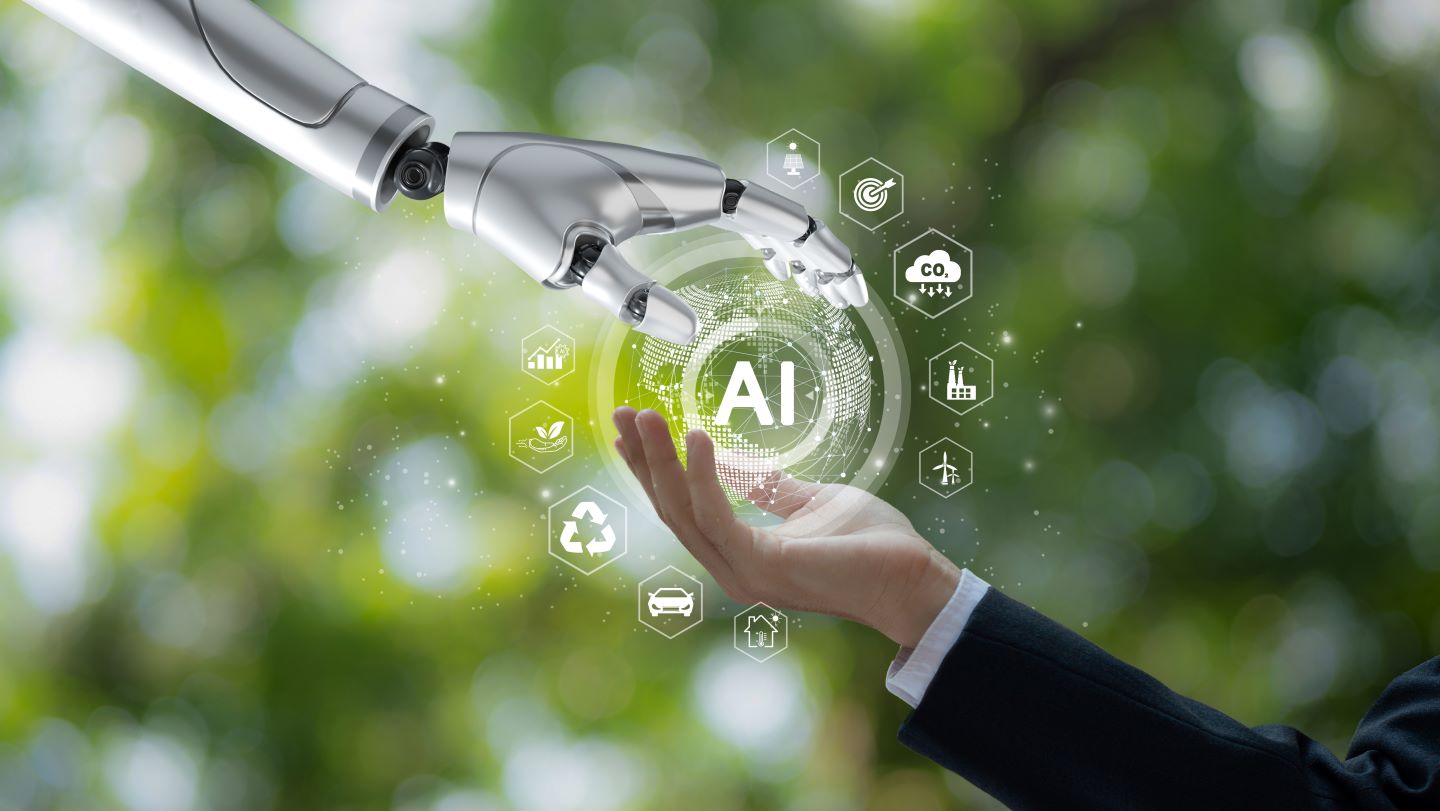The development of artificial intelligence has been rapid and positive, but many people are concerned about its risks. Within the AI community, there’s a push for faster and more extensive development, particularly regarding the development of data and AI technologies. One of the most notable challenges is the significant energy usage associated with training and running AI systems, which is increasingly recognised as a contributing factor to climate change and the rise in carbon emissions.
The downside of AI hype
Artificial intelligence is not just limited to AI assistants and chatbots. It is being trained to govern algorithms and carry complex AI systems that solely rely on data centres. These data centres are essential for AI, and they require substantial amounts of computing power and electricity, resulting in carbon dioxide emissions. Despite the growing awareness of these environmental impacts, accurately quantifying the influence of AI on climate change remains elusive due to the lack of transparency from many AI companies regarding their energy consumption and carbon footprint.
The environmental footprint of AI
Data centres are a crucial part of the infrastructure supporting digitalisation and the electricity infrastructure that powers them—they’re responsible for nearly 1% of global electricity demand. However, their significance comes with a heavy environmental cost, as they are responsible for nearly 1% of the world’s electricity demand. The rapid integration of AI into software programming and generative AI (GenAI) across various industries has further escalated the electricity consumption of data centres. For instance, the training of a single language model (LLM) can produce a carbon footprint equivalent to around 300,000kg of carbon dioxide emissions.
According to the International Energy Agency’s Electricity 2024 report, data centres, cryptocurrencies, and artificial intelligence consumed about 460TWh of electricity worldwide in 2022, accounting for almost 2% of total global electricity demand. Platforms like Open AI’s ChatGPT—compared to Google Search—require an additional 10TWh of additional electricity in a year. As Open AI’s ChatGPT usage increases, the electricity demand will surge as well. It is also estimated by the International Energy Agency that by 2026, the AI industry is expected to have grown exponentially to consume at least ten times its 2023 demand.
Leading countries in the AI race
According to GlobalData’s Future of Work report in 2022, China has pledged to become the world leader in AI by 2030 and will continue investing heavily in AI development. Chinese companies, such as Huawei, Alibaba, and Tencent, are among the top ten companies producing AI research. This highlights the significance of AI development and effective solutions to tackle challenges—such as the reduction of energy consumption and the eco-friendly disposal of AI hardware components—must be implemented.
Similarly, the United States continues to be a major contributor to the development of AI technologies, generating more than one-third of AI revenue in 2021. It is also the top country in AI adoption within the technology industry and has the highest number of AI-related patents, jobs, and deals. As the development of AI continues to progress, AI researchers and tech giants need to be transparent about the amount of energy emitted by their models and discover ways to make them more energy-efficient and environmentally sustainable.

US Tariffs are shifting - will you react or anticipate?
Don’t let policy changes catch you off guard. Stay proactive with real-time data and expert analysis.
By GlobalDataCultivating a greener future
As AI and machine learning technologies become more prevalent, it is important to consider their impact on the environment. Without reforming the current AI research agenda and increasing transparency, these systems could hinder efforts to slow down climate change. Government bodies must regulate companies that develop AI products, increase transparency, and encourage sustainable measures such as moving data centres to carbon-friendly regions of the world where renewable energy sources are being used to power these systems.









